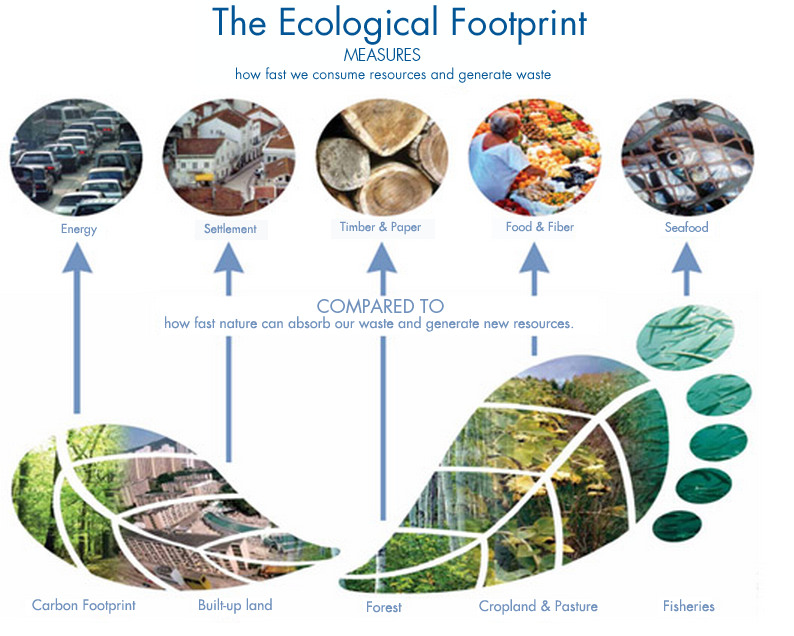Zero-Waste Lifestyle: 5 Ways To Reduce Your Ecological Footprint

From home to office live a Zero-Waste life with these small steps to reduce your ecological footprint.
What is Zero-Waste Lifestyle
A zero-waste lifestyle is a way of living that aims to reduce and eventually eliminate the amount of waste produced by an individual or household. It also involves reducing energy and water consumption, avoiding harmful chemicals and pollutants, and supporting sustainable practices and businesses.
Purpose of Zero-Waste Lifestyle
The primary purpose of this lifestyle is to send as little waste to the landfill as possible. You have to find ways to reduce, reuse, recycle, compost, or repurpose materials to prevent them from becoming waste. This lifestyle reduces our adverse impact on our ecosystem, encourages sustainable living, and reduces our ecological footprint.
The 5 R’s of Zero Waste
The 5 R’s of zero waste are the principles that guide individuals and households to live a zero-waste life.
Refuse what you don’t need.
Reduce the amount of waste you produce by consuming less.
Reuse what you already have.
Recycle materials that cannot be refused, reduced, or reused.
Rot or compost organic waste.
What is Ecological Footprint

An ecological footprint refers to the total impact an individual, organization, or product has on the environment. It measures the number of natural resources used, waste produced, and greenhouse gases emitted during the production, consumption, and disposal of goods and services.
The ecological footprints are Carbon, Water, Nitrogen, and Sulphur footprints. By reducing our ecological footprint, we can help preserve natural resources, protect ecosystems, and mitigate the effects of climate change.
Zero-Waste Home
- Replace incandescent bulbs (which waste 90 percent of their energy as heat) with light-emitting diodes (LEDs). Though LEDs are more costly, they use a quarter of the power and have a 25 times longer lifespan. They are also better than compact fluorescent lamp (CFL) bulbs, which emit 80 percent of their energy as heat and contain mercury. You can make your home more eco-friendly by buying energy-saving light bulbs or choosing appliances with a high-energy star rating.
- Switch off lights and unplug your electronic devices when you are not using them.
- Turn down your water heater — 120 degrees Fahrenheit is sufficient which can save about 550 pounds of CO2 a year.
- If you live in a state where a renewable energy supplier is available, pick that one.
- The United States Department of Energy recommends around 35 to 38 degrees Fahrenheit is required for the fresh food compartment and 0 degrees Fahrenheit for freezers. Don’t set your fridge and freezer temperatures lower than the specified limit.
- Stream movies through your smart TV, not your game console which uses 10 times higher energy to play films.
Zero-Waste Kitchen
What you cook in your kitchen is more important than where it comes from.
- Research is still going on what the most environmentally-friendly diet is, experts mostly agree that replacing red meat and dairy products in particular, is a better choice for the environment. Meat and dairy products require a lot of land, water, and energy to produce. Fill your plate with vegetables, fruits, grains, and beans.
- Choose organic, fresh, and local foods. Transporting food from far away uses a lot more resources than local produce. Processed foods often come wrapped in plastic packaging that is damaging to the environment.
- Reduce your food waste by planning for the right amount of food for the number of people eating.
- Buy foodstuffs in bulk when possible using your reusable tote, container, or fabric bag. Keep in mind you have to end up eating it before it goes bad.
- If you have a home garden you can compost your food waste like eggshells or fruit peels to mulch your soil naturally.
Zero-Waste office
- Turn off lights and appliances when you leave your cabin. Don’t forget to shut down your computer before leaving.
- Sharing documents using cloud storage or video conferencing is a significant step towards reducing waste and emissions. Encourage others to use digital documents instead of printing documents.
- Stop using things like disposable coffee cups and cutlery to reduce your company’s environmental footprint.
Opt for Zero-Waste Fashion
- Don’t buy ‘fast fashion‘ as these clothes are produced quickly, cheaply, and unsustainably.
- Buy vintage to save money and the environment.
- Wash your clothing in cold water instead of hot or warm water.
- Don’t buy clothing that will either wear out quickly or, you aren’t aware of how much time will you wear this.
- Look for a Fairtrade or similar logo that indicates your clothes were made sustainably.
Zero-Waste Travel
- Public transport such as trains, buses, and coaches carry many people and are often more sustainable forms of travel than petrol cars and taxis.
- The environmental footprint of flight is larger than any other mode of transport. The Eurostar trains emit around 6g of CO2 per kilometer traveled while a domestic flight produces 133g of CO2.
- Carry a reusable container for your water instead of one single-use plastic bottle.
- If you’re planning to buy a new car, consider purchasing a hybrid or electric vehicle.
- Many airlines and travel companies now offer you the opportunity to offset your carbon emissions. The money you pay goes towards climate protection projects, restoring forests, and making energy and transportation more efficient.
The Bottom Line
Zero waste lifestyle is not an all-or-nothing approach, but rather a gradual and continuous process of adopting sustainable practices and reducing waste. It requires a shift in mindset and behavior, as well as a willingness to make changes and to lessen your impact on the environment. We have to keep in mind that we all are connected. If we harm the planet, we harm ourselves.
Many brands are becoming plastic-neutral to reduce their environmental footprint with the help of The Disposal Company which encourages individuals to think differently. Check here to learn more.




